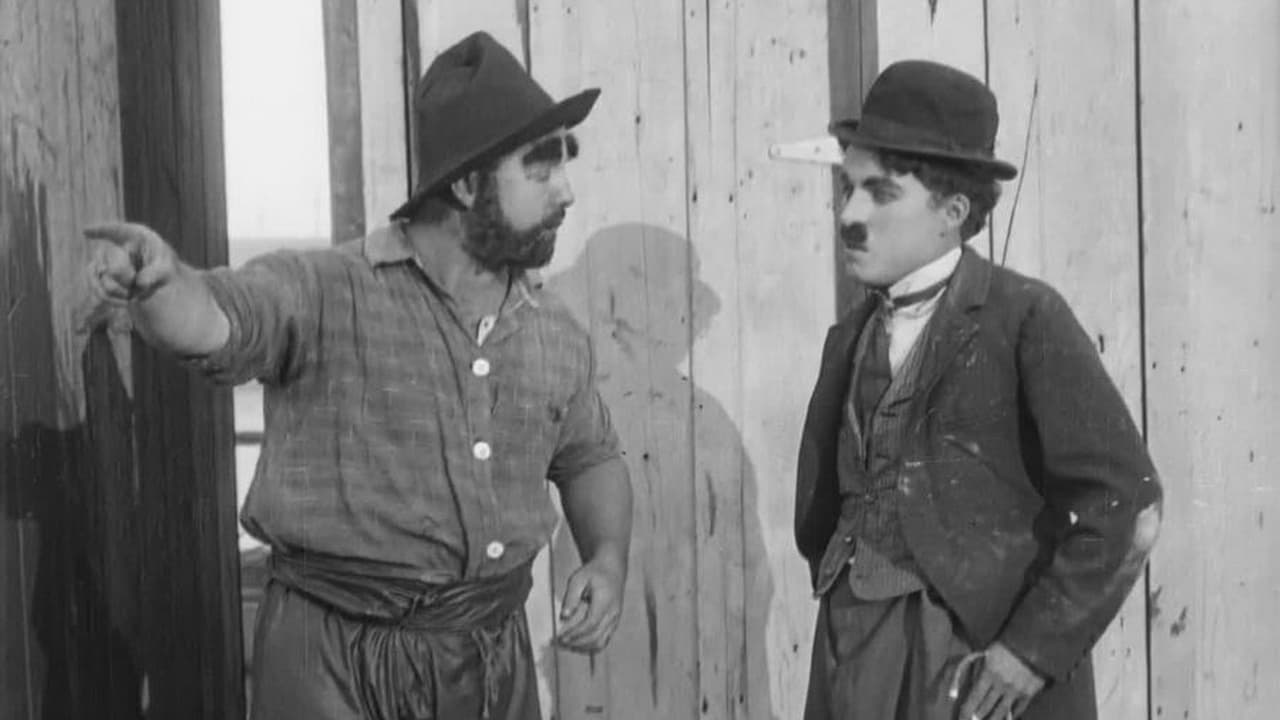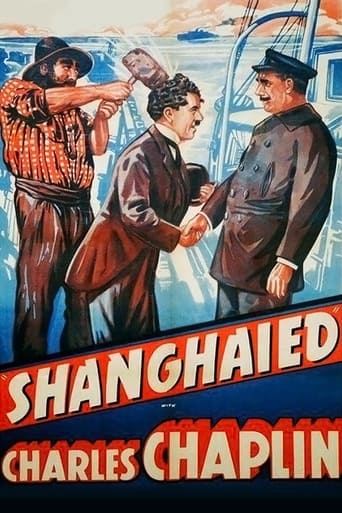Matrixston
Wow! Such a good movie.
Laikals
The greatest movie ever made..!
Dynamixor
The performances transcend the film's tropes, grounding it in characters that feel more complete than this subgenre often produces.
Rio Hayward
All of these films share one commonality, that being a kind of emotional center that humanizes a cast of monsters.
verbusen
I really enjoyed this Chaplin short. It's by no means his best work but I love it when Charlie is at sea (I'm a sailor), it just cracks me up because I can identify with things like sea sickness and things flying around on a boat. I mostly wanted to write a review to let you know there are several versions of this online, and most are really bad versions. So if you are trying to watch this online and hear ragtime music, that will tell you this is a bad version to watch. Look for the version that has a nautical music track to it and that is the restored version (it is available on an "official" youtube channel). By now we probably all know this but anytime you hear random ragtime music to all of these silent comedies I would look again to see if there is a restored version available with a proper score and restored video, FYI. I'm giving this one a 7 out of 10 because it made me laugh pretty good and some of those stunts looked pretty brutal too!
CitizenCaine
Chaplin edited, wrote, directed, and starred in Shanghaied, a comedy at sea. A shipowner, played by future director Wesley Ruggles, wants to destroy his own ship and its contents at sea in order to receive a huge settlement. Chaplin gets mixed up in recruiting sailors for the ship unaware of the plan. Chaplin gets caught aboard the ship as well, and soon he is forced to work on the ship to make do. Meanwhile, the shipowner's daughter, Edna Purviance, stows away aboard the ship. Chaplin falls for the daughter of course, but not before he endures several hardships at sea working as a dishwasher and cook's helper. The film is quickly paced, again with restrained slapstick in favor of a plot; however, the camera's see-saw effect is hopelessly phony. The camera movement changes speeds at times during these scenes, and the sea is obviously no where near as rough as the camera movement would have us believe. Chaplin has several neat bits of physical movement in this one, and get a load of the shipowner's sideburns! **1/2 of 4 stars.
MartinHafer
This is a pretty enjoyable Chaplin short from 1915. While certainly not among his best, it is worth seeing and is far from a bad film. In fact, up until the rocking ship segment of the film, it was probably a good bit better than average. Charlie was offered a job helping some sleazy ship's captain from kidnapping a crew for his boat--which the owner already intended to blow up for the insurance money (this is DEFINITELY not a ship you'd want to work). In the end, he, too, is conked on the head and becomes an unwilling crewman.However, despite a good beginning, soon Chaplin chooses to incorporate a rocking boat sequence into the film while he worked as a dishwasher. I've seen rocking boat scenes in two other Chaplin films already before this (including A PERFECT DAY and one other that doesn't immediately come to mind). I really hated this because although Chaplin was known for his attention to detail, these scenes by him were always handled very sloppily. Once again, the boat rocked way too fast and way too quickly--while the ocean appeared very calm. It just looked stupid and didn't make me laugh. A rolling boat COULD have been very funny--but not one that looks like that! Well, after this lousy part of the film, the short got better and involved Charlie saving the boat and the lives of everyone. At least it ended well.
Michael DeZubiria
Shanghaied is one of Chaplin's early short films that begins in a more ambiguous way than most, meaning that early on, it is pretty hard to tell what's going on, seeing how the film is obviously silent (this is 1915, after all), but as always, by the end of the film the story becomes clearer, and this one is particularly memorable. Evidently, Charlie is hired to knock out a bunch of drunks with a wooden mallet, which is not brilliant in terms of narrative, but it makes room for some of the endlessly amusing fighting scenes that are commonplace in Chaplin's films. Another thing that is traditional is for the majority of the comedy in each individual film to be derived from one main source, and here, it is a crane that causes all sorts of trouble for Charlie and the other men as they try to clean up a ship. But as funny as this part of the film is, it REALLY gets good when the dishwashing scene starts. Not only is there some hilarious mishaps involving Charlie confusing the soup pot with the dishwater, but he also slips in some very characteristic moves, dancing around the room in the comical, carefree way that only Charlie can really do. Also, while watching this scene, look for a quick shot of him doing the very same backwards sliding move that he did very extensively in the spectacular song and dance number that he performed at the end of his film Modern Times, which he made more than two decades later.I think this is the most advanced of Chaplin's earliest films that I've seen so far. It is longer than most of the ones before it and probably has more sight gags and stunts that later became famous in Chaplin's much better known full length films. We see the little tramp as a dishwasher, waiter, lots of fights, the tilting set with sliding dishes and angry sailors, the tramp thumbing his nose at authority, showing a comical eagerness to obtain a job for which he is clearly totally unqualified, sharpening his knife and fork before while the men next to him shovel food in their mouths like cavemen, meanwhile Charlie gives up his impeccable table manners because the heaving ocean is making him seasick. The story is more complex than previous films but still very simple, although it clearly foresees a lot of the style and imagery of The Immigrant, even down to the eating scenes and the on deck love interest. Stay tuned for the action packed ending, which I think is also one of the best endings that Chaplin had made in his films up to that point. Outstanding!

